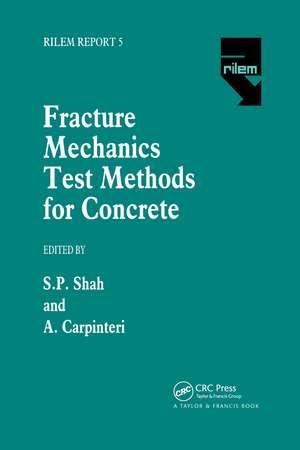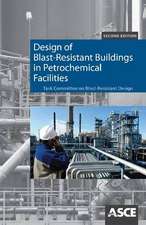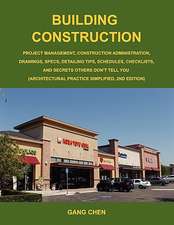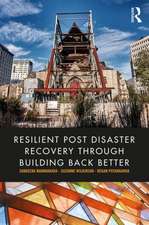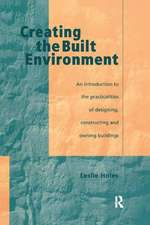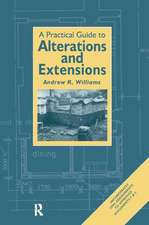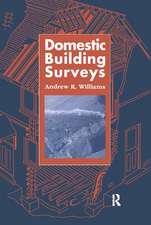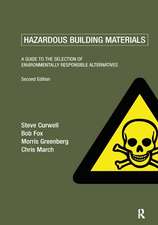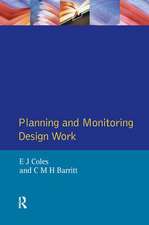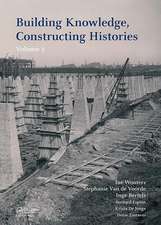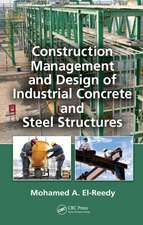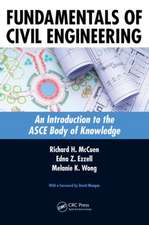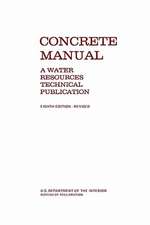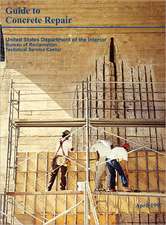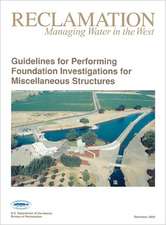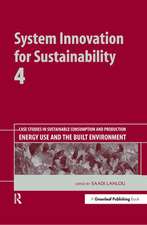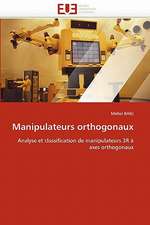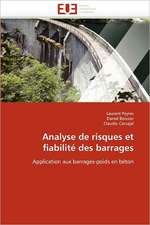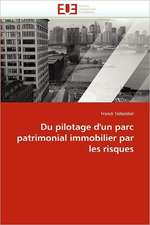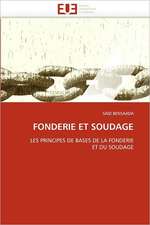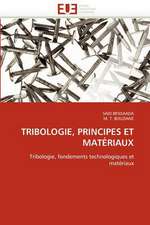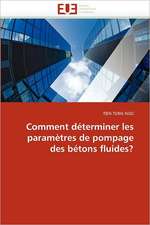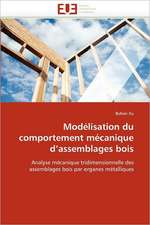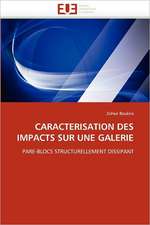Fracture Mechanics Test Methods For Concrete
Editat de Surendra Shah, Alberto Carpinterien Limba Engleză Hardback – 7 mar 1991
| Toate formatele și edițiile | Preț | Express |
|---|---|---|
| Paperback (1) | 472.10 lei 6-8 săpt. | |
| CRC Press – 12 dec 2019 | 472.10 lei 6-8 săpt. | |
| Hardback (1) | 1823.15 lei 6-8 săpt. | |
| CRC Press – 7 mar 1991 | 1823.15 lei 6-8 săpt. |
Preț: 1823.15 lei
Preț vechi: 2459.99 lei
-26% Nou
Puncte Express: 2735
Preț estimativ în valută:
348.85€ • 365.21$ • 288.66£
348.85€ • 365.21$ • 288.66£
Carte tipărită la comandă
Livrare economică 05-19 aprilie
Preluare comenzi: 021 569.72.76
Specificații
ISBN-13: 9780412411007
ISBN-10: 0412411008
Pagini: 300
Dimensiuni: 156 x 234 x 20 mm
Greutate: 0.52 kg
Ediția:1
Editura: CRC Press
Colecția CRC Press
ISBN-10: 0412411008
Pagini: 300
Dimensiuni: 156 x 234 x 20 mm
Greutate: 0.52 kg
Ediția:1
Editura: CRC Press
Colecția CRC Press
Cuprins
Preface. RILEM technical committee 89-FMT. Subcommittees. Notched beam test: mode I fracture toughness. Introduction. Summary and recommendation. Proposal 1: Two parameter model (TPM). Proposal 2: Size Effect Law (SEL). Proposal 3: Effective Crack Model (ECM). Comparison of ECM and TPM. Application of proposed fracture models to large structures. Acknowledgement. References. Appendices (Test data, Proposal 1 and ECM). Fracture properties of concrete as determined by means of wedge splitting tests and tapered double cantilever beam tests. Introduction. Description of experiments. Experimental results. Determination of Gf-values and tensile softening diagrams. Evaluation of fracture toughness Kic by the compliance method. Mode I fracture parameters. Conclusions and recommendations. References. Mixed-mode crack propagation in concrete. Introduction. Mixed-mode fracture criteria. Test specimen geometries. Fracture of concrete in compression. Conclusions. References. Appendix (Round robin). Loading rate, temperature and humidity effects. Loading rate effects. Temperature and moisture influence. References. Fracture process zone detection. Introduction. Compliance measurements. X-ray techniques. Optical microscopy. Scanning electron microscopy. Electric resistance strain gauge techniques. Photoelastic methods. Mercury penetration measurements. Dye penetrants. Infrared vibrothermography. Ultrasonic pulse velocity. Demec gauges. Acoustic emission. Interferometry techniques. Multi-cutting techniques. Numerical methods. Conclusions. Acknowledgements. References. Laser interferometry methods. Holographic interferometry. Speckle photography. Speckle interferometry. References. Indices.
Recenzii
"This book should help the international community in implementing the fracture mechanics-based design Codes. - Correspondence
Notă biografică
Surendra Shah is Professor of Civil and Environmental Engineering at Northwestern University, McCormack School of Engineering.
Alberto Carpinteri is professor in science of construction at the Polytechnic University of Turin.
Alberto Carpinteri is professor in science of construction at the Polytechnic University of Turin.
Descriere
This book reviews methods for the experimental determination of concrete toughness, and presents theories and models suitable for describing cracking and fracturing phenomena in plain and reinforced concrete.
